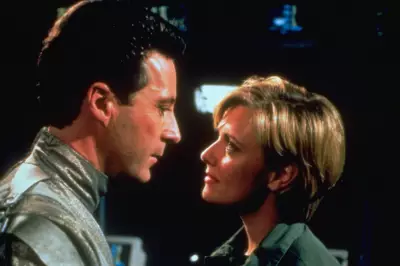
In a dramatic industry confrontation, acclaimed actress Emily Blunt has joined forces with SAG-AFTRA to condemn the unauthorized use of artificial intelligence to replicate child actors, following the shocking case of young performer Tilly Norwood.
The Digital Invasion That's Shaking Hollywood
The controversy erupted when it was revealed that Norwood's likeness was digitally recreated using AI technology without her knowledge or consent. This alarming precedent has sent shockwaves through the entertainment industry, raising urgent questions about the ethical boundaries of emerging technologies.
Emily Blunt didn't mince words when addressing the situation, stating that the incident represents "a fundamental violation of artistic integrity and personal rights." Her powerful stance has amplified the growing concern among performers who fear being replaced by digital replicas.
SAG-AFTRA's Firm Response
The actors' union has launched a formal condemnation of the practice, warning that such unauthorized use of AI threatens the very foundation of creative professions. Union representatives emphasized that this case involving a child performer makes the violation particularly egregious.
The incident has reignited debates about:
- The need for comprehensive AI regulations in entertainment
- Protections for minor performers in the digital age
- The ethical boundaries of post-production technology
- Consent requirements for digital replication
A Watershed Moment for Performer Rights
This case represents what many industry insiders are calling a watershed moment. The film industry now faces critical decisions about how to balance technological advancement with basic human rights and artistic dignity.
"When technology crosses the line from tool to trespass, we must draw clear boundaries," Blunt emphasized during her statement, capturing the sentiment of many performers who feel increasingly vulnerable to digital replacement.
The growing consensus among industry professionals suggests that without immediate action and clear regulations, the very nature of acting and performance could be fundamentally altered, potentially sidelining human talent in favour of digital creations.





